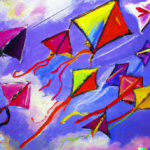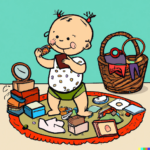Dr. (Mrs.) Kamal Mohan, M.B B.S., is a medical attendant at the Central Government Health Scheme’s (CGHS) dispensary on Gen. Thimayya Road, Pune. She had joined the Army in 1963 and served in it tor ten years, leaving eventually after attaining the rank of Major. She has also worked in the U. K. for two years. Her husband, a Lieutenant Colonel, is a surgeon.
Endowed with an infectious smile and a remarkable memory, Dr. Kamal is a model of efficiency. With an unruffled exterior, she looks more of a flight attendant than a doctor. Her exquisitely decorated flat at Central Apartments, Convent Street bears testimony to her taste for delicacy. It was mainly the humanitarian aspect of the work that induced her to become a doctor.
A model dispensary,according to Dr.Kamal has an adequate staff and is well equipped. It caters to a small group of people, so that all can be promptly attended to. Her C.G.H.S. dispensary , though still in its initial stage in Pune, has the makings of a model dispensary. So far the work has been pleasant. About 150 to 200 persons come for treatment every day, out of which she examines about 60.
However her best experiences were during the 1971 war, when she and her husband were working together in the intensive care unit in one of the foreward hospitals in the western sector. The work then was “absolutely gratifying.”
Dr. Kamal thinks highly of the barefoot doctors of China. These go from village to village, from hut to hut. and thereby meet the masses. She feels that the crying need of the hour is more qualified doctors, who should be properly trained and sent out into the rural areas. In, a poor country like ours it is more important to treat simple ailments of the masses, than to expose a restricted urban population to highly sophisticated treatment,which the country can’t really afford. If there were enough general practitioners to attend to the patients with the common problems, then there would be a drastic reduction in the number of cases referred to specialised medical centres.
She is greatly concerned about the indiscriminate use of drugs. She says, “self medication is dangerous. Every drug is a double-edged weapon. It has its good points as well as bad points. Antibiotics, for instance, must always be taken in adequate quantities and for a specified period. If taken haphazardly they can cause complications and thus prove to be worse than their benefits.
She feels that sometimes there is great misuse of drugs in private practice. Some practitioners aim at obtaining quick results and prescribe drugs on a hit-and miss basis. They, thus tend to over-treat their patients. Patients too are attracted by fancy-name medicines, tonics and cough mix-tures, in the hope of obtaining quick relief. “Doctors”, she cautions, “have no magic wand. The treatment of a body ailment takes time. One seeks a quick cure only at one’s peril.”
She thinks that the use of drugs should be minimised as far as possible. In certain conditions like high blood pressure, diabetes, bronchial asthma etc., the patient becomes drug dependant. There are numerous ailments, however, which can be managed by the masterly and minimal use of medicine.
Dr.Kamal regards her profession as one of the most interesting and gratifying professions. Every day one learns something more, and if one practices honestly, one can do much to alleviate pain and suffering, she says.
However she considers the preventive aspect of medicine as important. if not more important than the curative side. Doctors must take more pains to train the masses-on matters of personal hygiene and civic sense. They Should also help up their immuni-sation programmes.
She finally leaves this parting advice: a well-balanced and complete diet, with the appropriate quantity of proteins, carbohydrates and fats goes a longer wav in maintaining good health than the myriads of tonics and vitamin preparations that are being hurled at the common man.



